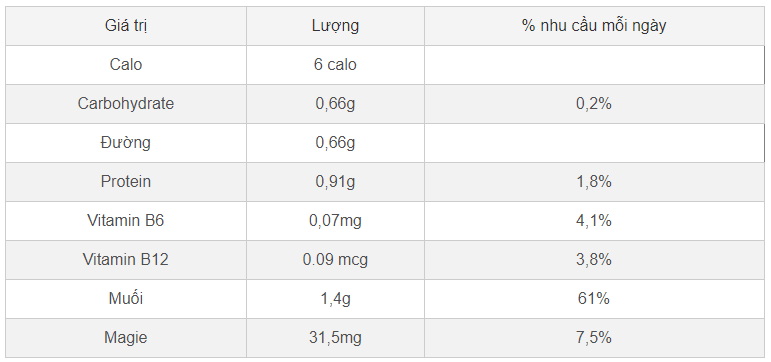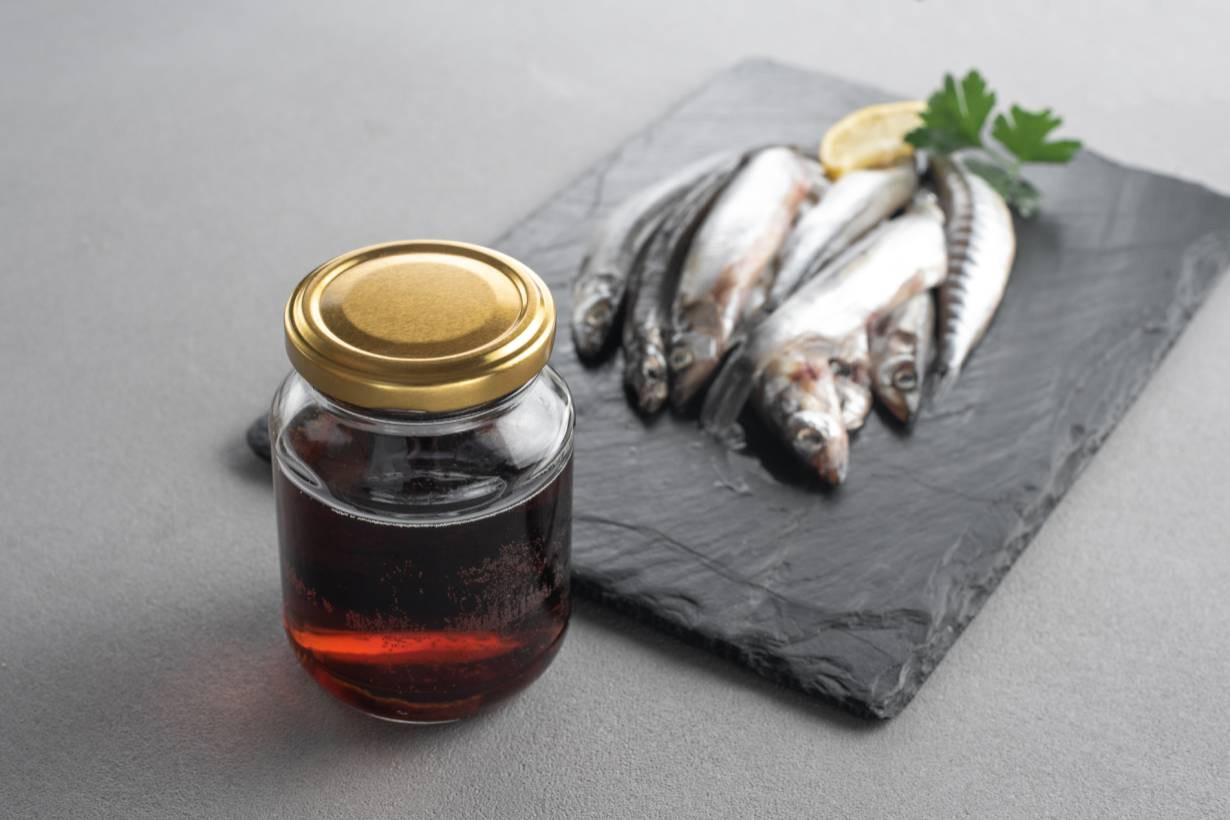Fish sauce has been a part of the human diet for thousands of years. Today, it is mainly popular in Asian countries such as China, Japan, Korea, Thailand and Vietnam.
Nutrition
Effect
Enhance the flavor of the dish: Fish sauce brings a rich flavor that significantly improves the deliciousness of food.
Provides moderate amounts of vitamin B and magnesium: According to the US Department of Agriculture , one tablespoon of fish sauce provides 7.5% and 2-4% of the daily recommended intake of magnesium and vitamin B, respectively. These two substances play an important role in the process of energy production.
Low in calories: While common condiments are high in calories (mayonnaise, ketchup, barbecue sauce), fish sauce is low in calories. Therefore, it is a great choice to enhance the flavor of foods for those who want to reduce their energy intake.
Disadvantages
High in sodium: 18g of fish sauce contains 1.4g of sodium (more than 60% of the daily recommendation). Therefore, people on a low-salt diet should consider using an alternative condiment, using a small amount.
Allergy Potential: Fish and shellfish can cause allergic reactions in some people. According to Nutrition Advance, the main ingredient in fish sauce is fish or shellfish, so it can affect people with seafood allergies.
Fish sauce makes food taste better, but you shouldn't use too much. Photo: Nutrition Advance
Do not eat fish sauce left overnight.
According to The Kitchn, fish sauce has a long production and fermentation time, so it does not need to be stored in the refrigerator. However, that is when the fish sauce is in a bottle and not used.
When mixed for dipping, fish sauce is supplemented with many other ingredients such as sugar, filtered water, chili, lemon, or leftover food (vegetables, meat, fish) and bacteria from chopsticks and spoons. These factors create toxins that are harmful to the body, especially when you leave fish sauce overnight in the outside temperature.
Therefore, it is best to only mix a moderate amount of fish sauce and not use it for the second meal.
Do not share a bowl of fish sauce
Most Vietnamese people have the habit of picking up food for each other and dipping in the same bowl of fish sauce. This habit spreads some types of bacteria, including HP - a factor that causes stomach diseases, even cancer, or the SARS-CoV-2 virus that leads to Covid-19. Therefore, in some families, all members suffer from stomach diseases due to unscientific eating habits.
Therefore, doctors advise people not to use their own chopsticks to pick up food from a shared bowl, but to have their own pair of chopsticks, spoons, and scoops on the tray to pick up shared food; not to use their own chopsticks to pick up food for others; not to share a bowl of dipping sauce, but to give each person a small bowl. If sharing, limit the use of personal spoons and chopsticks to stir the fish sauce and food.
Do not eat more than a spoonful.
According to SBS, a report from the George Institute for Global Health, VicHealth and the Australian Heart Foundation shows that eating just one spoonful of fish sauce (15ml) is enough to consume almost all of the recommended salt intake for the day.
When analyzing the salt content of 157 popular sauce products, the authors found that fish sauce was the saltiest. Therefore, people who need to eat a bland diet such as people with high blood pressure, cancer, bone and joint diseases, and diabetes should limit their intake of fish sauce.
Source vietnamnet
Source: https://baotayninh.vn/ba-khong-khi-su-dung-nuoc-mam-a177446.html


































































































Comment (0)